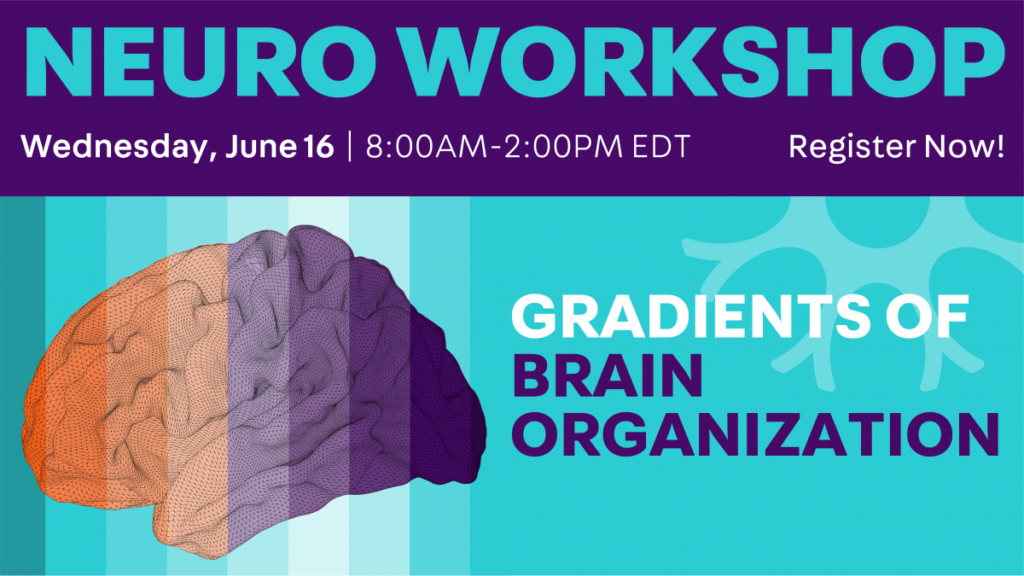QBIN is proud to have sponsored the 2nd edition of the Gradients of Brain Organisation workshop, which took place on the 16th of June, 2021. In total, 395 individuals from around the world registered for the event. At the peak on the zoom call, 164 individuals were online. The workshop was also livestreamed on Vimeo.

The first session, “Bridging Scales”, captured neurobiological research that spans biological scales. The three talks by Seok-Jun Hong (Sungkyunkwan University, South Korea), Casey Paquola (Forschungszentrum Jülich, Germany) and Seán Froudist-Walsh (New York University, USA) demonstrated the breadth of applications of multi-scale gradient approaches, including the study of autism, functional networks and non human primates. The discussion panel centred on the potential of computational modelling to assess the influence of microcircuitry on system-level brain organisation.

The second session, “Dynamics”, highlighted the work of four early career researchers, Katharina Glomb (University of Lausanne, Switzerland), Keyvan Mahjoory (Max Planck Institute for Empirical Aesthetics, Germany), Golia Shafiei (McGill University, Canada) and Myrthe Faber (Donders Institute for Brain, Cognition and Behaviour, The Netherlands). The presentations described different methods to investigate the functional dynamics of the brain, leveraging functional MRI and MEG. The discussion panel focused on how different methods are complementary and the difficulties of describing functional dynamics in association cortex.
The third and final session of the day, “Evo-Devo”, included three talks on evolution and development from Ludovico Coletta (Istituto Italiano di Tecnologia, Italy), Christine Charvet (Delaware State University, USA) and Graham Baum (Harvard University, USA). The speakers and chairs discovered a common interest amongst Evo-Devo researchers on the relationship between structure and function. They suggested that the wide variation in form and behaviour that is observed across species and age groups is ideal to investigate the relationship between structure and function in the brain. The group reached a consensus on the need to incorporate more detailed measures of structure-function coupling in future studies, and also discussed the origins of gradients.

The conference proceedings are available on YouTube:

